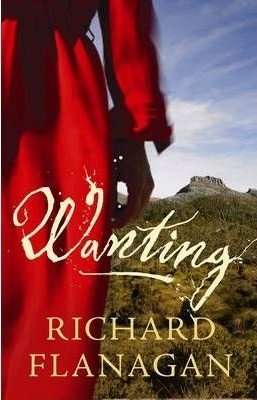Wanting by Richard Flanagan: Evocative and impactful
Evocative. Wanting by Richard Flanagan is a story that will move even the most hardened of souls. Flanagan dares to ask the question, what is the difference between a savage and one that is civilized?
This is a work of fiction but set in the late 1800s and based on the lives of actual historical figures of that time which readers will no doubt be familiar with – author Charles Dickens and explorer Sir John Franklin.

Flanagan has masterfully blurred the line where fact becomes fiction.
It was such a joy to read of historical figures in their appropriate historical context – for instance, Wilkie Collins features as Dickens’ young friend and confidante in this novel, just as in life. There are other well known historical figures that are mentioned throughout the novel too but I won’t spoil the surprise for readers by disclosing them in this review.
I have never before seen historical fact used to such great effect to tell a story of fiction. The realities of those lives once lived act as an anchor for the story being told – reminding the reader that just as those people really lived, the atrocities described within this work of fiction really did take place.
The question of what makes one civilized as compared to one deemed a savage is explored on multiple levels in Wanting.
In a direct sense, this tension is illuminated through the plight of a young Aboriginal girl named Mathinna in the penal colony of Van Diemen’s Land. The governor of the penal colony Sir John Franklin and his wife Lady Jane adopt this little girl in a grand experiment in civilisation that is intended to show that science, Christianity and reason can be imposed in place of what they consider savagery, impulse and desire.
On another level this concept is explored in through the internal struggles of the creative mind of Charles Dickens, a ‘boy made good’ and lauded in British society for the morality and family values espoused in his popular novels.
On a broader level, the savagery of the colonizing powers and further still the savagery of civilised society is laid bare for the reader to reflect upon.
Disclosure: If you click a link in this post we may earn a small commission to help offset our running costs.
Sign up to our Booklover Book Reviews emails and receive our gift for new subscribers. LEARN MORE >>
Flanagan’s writing style is masterful, grabbing the reader by the shoulders and forcing them to delve into their own ideologies and beliefs on good and evil, discipline and desire, right and wrong.
The story is told through powerful imagery. The juxtaposition of a barefoot aboriginal girl wearing a red silk dress sitting for her portrait gives one pause for thought, as does the confronting descriptions of the brutality suffered by the native inhabitants of what we now know as Tasmania, Australia at the hands of the colonizing powers.
…he walked miles and miles, ever deeper into the mysterious labyrinth of the greatest city in the world. As clatter, hovels, cries and stench filled his being, he would keep on walking, the filthy dross of the everyday stirring in his alchemist’s head and transforming into the pure gold of his fancy.
I cannot praise this novel enough. It should become a classic. Wanting makes us reflect on the fundamental questions of right and wrong, good and evil, and the meaning of life itself.
BOOK RATING: The Story 5 / 5 ; The Writing 5 / 5
Get your copy of Wanting
The Author: Richard Flanagan was born in Tasmania in 1961. He is a Rhodes Scholar and an author and film director. His other works of fiction include Death of a River Guide, The Sound of One Hand Clapping
, Gould’s Book of Fish
and The Unknown Terrorist
.
